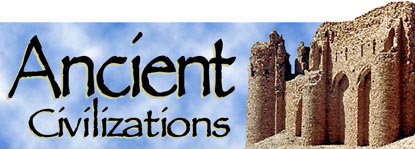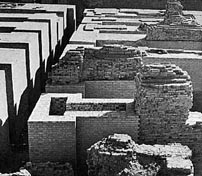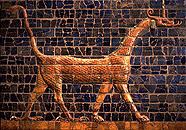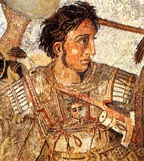
|


|
|
|
Mr. Sedivy's
More Features:
|
Highlands Ranch High School - Mr. Sedivy World
History
- Ancient
Civilizations Akkad - 2350 to 2150 BC
Sargon the Great The first empire - all territory under one ruler, Akkad, lasted 100 years. Akkad adopted Sumerian culture and blended it with their own. Later, Akkad fell to barbarians and chaos lasted for 100 years. Mesopotamian Advances
Ur c. 2060 BC - 1950 BC
Hammurabi - 1792 to 1750 BC
The laws were coordinated by one central body. Hammurabi called for just treatment. If someone damages you: You may damage them only to the extent of what they did to you. An eye for an eye; a tooth for a tooth. The Babylonians valued honesty, hard work, personal responsibility, fairness, upper class people, children, etc. Hittites The Fall of Mesopotamia The following contributed to the fall of Mesopotamia: 1. Overcrowding led to pollution. 2. War-like tribes trying for geographic influence. 3. Too much irrigation. They had irrigated all the way to the sea and the soil was ruined by salt. After the Hittites withdrew, nothing much was known about the next four centuries, a dark ages. The Assyrians - c. 900 BC to c. 612 BC Assurians - Built a huge empire Assur and Ninereh - Major cities with lots of construction. Largest empire in the world at the time. New Babylonian Empire - 625 to 538 BC
Chaldean Dynasty - 605 to 562 BC Nebuchadnezzar captured what was left, overthrew the Assyrians (joined with the Medes). Babylon became one of the "Seven Wonders of the World" - The Hanging Gardens, and the Ishtar Gate. Lost Egypt, but captured Tyre and Jeruselum. Fell to the Persians in 538 BC. Babylonian Captivity - 538 BC Cyrus the Great 538 BC Greek - Alexander the Great - 330 BC
Mesopotamia and the City of Sumeria More Information Historical Periods of | Prehistory
| Mesopotamia & Phoenicians |
|
Highlands Ranch High School ![]() 9375 South Cresthill Lane
9375 South Cresthill Lane ![]() Highlands Ranch, Colorado 80126
Highlands Ranch, Colorado 80126 ![]() 303-471-7000
303-471-7000
Mr. Sedivy's History Classes
| Colorado History | American
Government | Modern European History | Advanced
Placement European History | Rise of England
| World History |
| Home | Back to top of page |
Site Contents |







